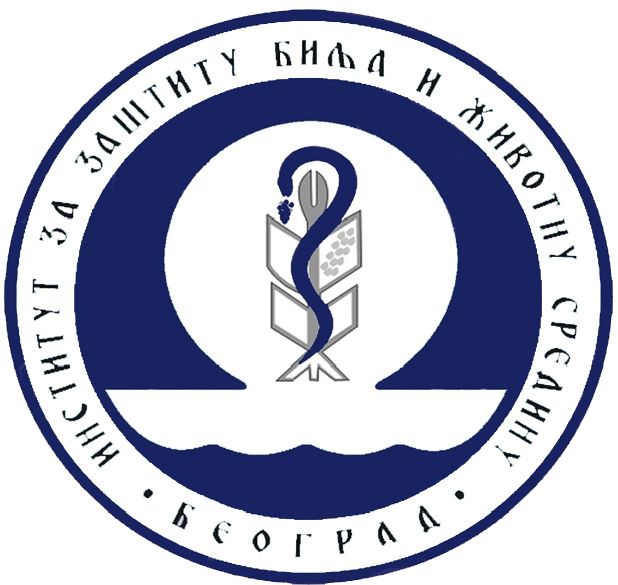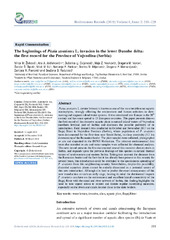Приказ основних података о документу
The begginings of Pistia stratiotes (Linnaeus, 1753) invasion in the lower Danube delta: The first record for the Province of Vojvodina (Serbia)
| dc.creator | Živković, Milica | |
| dc.creator | Anđelković, Ana | |
| dc.creator | Cvijanović, Dušanka | |
| dc.creator | Novković, Maja | |
| dc.creator | Vukov, Dragana | |
| dc.creator | Šipoš, Šandor | |
| dc.creator | Ilić, Miloš | |
| dc.creator | Pankov, Nemanja | |
| dc.creator | Miljanović, Branko | |
| dc.creator | Marisavljević, Dragana | |
| dc.creator | Pavlovic, D. | |
| dc.creator | Radulović, Snežana | |
| dc.date.accessioned | 2023-09-17T21:13:19Z | |
| dc.date.available | 2023-09-17T21:13:19Z | |
| dc.date.issued | 2019 | |
| dc.identifier.issn | 2242-1300 | |
| dc.identifier.uri | https://plantarum.izbis.bg.ac.rs/handle/123456789/863 | |
| dc.description.abstract | Pistia stratiotes L. (water lettuce) is known as one of the most troublesome aquatic macrophytes, strongly affecting the environment and human activities in slowmoving and stagnant inland water systems. It was introduced into Europe in the 20th century and has since spread to 15 European countries. This paper presents data on the first record of this invasive aquatic plant in natural inland waters of Vojvodina (northern lowland part of Serbia) and discusses the possible pathways of its introduction. Field research was conducted in October and November 2017 on the Begej River in Vojvodina Province (Serbia), where populations of P. stratiotes were documented for the first time near Srpski Itebej, in close proximity (1.2 km downstream) of the Romanian border. The plant samples were collected, photographed in situ and deposited in the BUNS Herbarium. The relevant environmental data were also recorded in situ and water samples were collected for chemical analysis. This new record presents the first documented case of this invasive alien in rivers in Serbia, and expands upon the previous findings of this species in natural thermal waters of south-eastern and eastern Serbia. Taking into account the distance from the Romanian border and the fact that it has already been present in this country for several years, this introduction could be attributed to the spontaneous spreading of P. stratiotes from this neighbouring country. Nevertheless, despite this possibility, discarded aquarium plants cannot be entirely discounted as a potential source of this new introduction. Although it is hard to predict the exact consequences of this new introduction at such an early stage, bearing in mind the detrimental impacts P. stratiotes can have on the environment and excellent lateral connectivity of the Begej River with the canal and river network of Serbia, this finding highlights the need to take urgent action to control and instate regular monitoring measures, especially on the rivers and canals located close to the state borders. | sr |
| dc.language.iso | en | sr |
| dc.publisher | InvasivesNet | sr |
| dc.relation | info:eu-repo/grantAgreement/MESTD/MPN2006-2010/143002/RS// | sr |
| dc.relation | info:eu-repo/grantAgreement/MESTD/Technological Development (TD or TR)/31018/RS// | sr |
| dc.relation | info:eu-repo/grantAgreement/MESTD/Technological Development (TD or TR)/31043/RS// | sr |
| dc.rights | openAccess | sr |
| dc.rights.uri | https://creativecommons.org/licenses/by/4.0/ | |
| dc.source | BioInvasions Records | sr |
| dc.subject | water lettuce | sr |
| dc.subject | invasive | sr |
| dc.subject | alien | sr |
| dc.subject | aquatic plant | sr |
| dc.subject | Begej River | sr |
| dc.title | The begginings of Pistia stratiotes (Linnaeus, 1753) invasion in the lower Danube delta: The first record for the Province of Vojvodina (Serbia) | sr |
| dc.type | article | sr |
| dc.rights.license | BY | sr |
| dc.citation.epage | 229 | |
| dc.citation.issue | 2 | |
| dc.citation.spage | 218 | |
| dc.citation.volume | 8 | |
| dc.type.version | publishedVersion | sr |
| dc.identifier.doi | 10.3391/bir.2019.8.2.03 | |
| dc.identifier.fulltext | http://plantarum.izbis.bg.ac.rs/bitstream/id/3136/bitstream_3136.pdf | |
| dc.identifier.scopus | 2-s2.0-85067228347 | |
| dc.identifier.wos | 000467774800003 |


